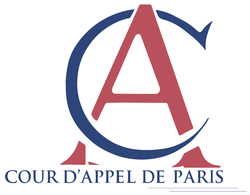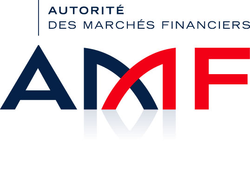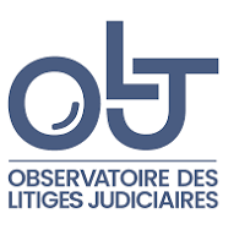The recent news
Oct. 21, 2025
Newsletter MAFR - Law, Compliance, Regulation

🌐follow Marie-Anne Frison-Roche on LinkedIn
🌐subscribe to the Newsletter MAFR Regulation, Compliance, Law
🌐subscribe to the Video Newsletter MAFR Surplomb
🌐subscribe to the Newsletter MaFR Droit & Art
____
► Full Reference: M.-A. Frison-Roche, ""Juge modeste" ou "check and balance" :alternative aux Etats-Unis, alternative en France" ("modest judge" or "check and balance": alternative in the United States, alternative in France), Newsletter MAFR Law, Compliance, Regulation, 21 October 2025..
____
📧Read by free subscription other news from the MAFR Newsletter - Law, Compliance, Regulation
____
► Summary of this article: Recent,
____
📧read below the article published the 6 October dans the Newsletter MAFR - Law, Compliance, Regulation ⤵️
Oct. 17, 2025
Compliance: at the moment

🌐suivre Marie-Anne Frison-Roche sur LinkedIn
🌐s'abonner à la Newsletter MAFR Regulation, Compliance, Law
🌐s'abonner à la Newsletter en vidéo MAFR Surplomb
🌐s'abonner à la Newsletter MaFR Droit & Art
____
► Référence complète : M.-A. Frison-Roche, participation au deuxième Conseil de justice économique de la Cour d'appel de Paris, L'intelligence artificielle au service d'une justice économique plus efficiente : l'usage de l'IA dans les missions judiciaire , 17 octobre 2025.
Je siège dans ce Conseil constitué pour le rayonnement du Droit économique par sa Justice dans une perspective d'attractivité de la Place de Paris en tant qu'universitaire, procédant notamment à la synthèse des travaux et des discussions qui s'y tiennent.
____
🌐Consulter le compte-rendu fait par la Cour d'appel de cette séance du Conseil de justice économique
____
Cette deuxième réunion du Conseil de justice économique de la Cour d'appel de Paris était présidée par Jacques Boulard, Premier Président de la Cour et Thierry Ramonatxo, Premier Avocat générale près la Cour
🪑🪑🪑Autres participants au Conseil de Justice économique ayant participé à la discussion autour de l'usage de l'IA dans les missions judiciaires dont la Cour d'appel de Paris et les juridictions de son ressort sont en charge :
🪑 Carine Chevrier, secrétaire générale du ministère de la justice,
🪑 Thomas Courbe, directeur général des entreprises au ministère de l'Economie et des Finances
🪑 Patrick Sayer, président du Tribunal des activités économiques de Paris
🪑 Benoît Coeuré, président de l'Autorité de la concurrence
🪑 Maxime Delorme, représentant Marie-Anne Barbat-Layani, présidente de l'Autorité des marchés financiers
🪑 Alexandra Bonhonne, représentant Emmanuelle Wargon, présidente de la Commission de régulation de l'Energie
🪑 Thierry Gontard, représentant Pierre Hoffman, bâtonnier de l'Ordre des avocats de Paris
🪑 Brigitte Brun-Lallemand, première présidente de chambre direant le pôle "droit économique" de la Cour d'appel de Paris
🪑 Laure Aldebert, première vice-présidente du Tribunal judiciaire de Parisen en charge du pôle économique
Oct. 16, 2025
Publications
🌐Follow Marie-Anne Frison-Roche on LinkedIn
🌐Subscribe to the Newsletter MAFR Regulation, Compliance, Law
🌐Subscribe to the video newsletter MAFR Overhang
🌐Subscribe to the Newsletter MaFR Law & Art
____
► Full reference : M.-A. Frison-Roche, "De l'obligation de compliance à l'obligation de vigilance : le rôle du juge (From the obligation of compliance to the obligation of vigilance: the role of the judge)", in Round table De la compliance au devoir de vigilance. Une nouvelle responsabilité des entreprises (From Compliance to the Vigilance duty. A new responsibility for businesses," Lettre des juristes d'affaires, Oct. 2025.
____
📝read the article reproducing the entire discussion (in French)
____
► Summary of my contribution: In this debate, the terms of which have been reproduced in the journal, I was asked to explain how the legal system had evolved, first by establishing Compliance Law, built on systemic ambitions to prevent sectoral disasters (banking, finance, energy), ambitions that constitute "Monumental Negative Goals", and then evolving on the one hand "Monumental Positive Goals", namely the protection of human beings involved willingly or unwillingly in these systems, on the other hand, outside even sectors with clearly defined boundaries, such as environmental or digital ambitions. The duty of vigilance extends this regulatory law and gives concrete form to the "compliance obligation" to which companies are subject. It is important to maintain a sense of proportion in the conception of the responsibility attached to it so as not to lose everything. Companies are bound by the goals but must remain free in their choice of means, and in particular be encouraged to use contractual techniques. This measure is entrusted to the judge because, due to the Compliance Jurisdictionalisation, it is at the heart of this new branch of Law, which is developing independently of fluctuations in the regulations.
During the discussion, I was asked for my opinion on the ruling handed down by the Paris Court of Appeal on 17 June 2025, known as La Poste case. I pointed out that the comments had often focused only on the developments regarding risk mapping, whereas this ruling first establishes the principle that the vigilance plan is the work of the company's decision-making bodies and is not co-constructed, as consultation is a process of discussion and taking in consideration, which is not the same thing, with the judge himself pointing out that they must not interfere in management.
In the discussion, I emphasised that if we were to highlight the essence of what would be a "new responsibility", it would primarily concern a new probative dimension that the company must implement in Ex Ante. The implementation of the CSRD, even if it has been excessively standardised, is in line with this, and this probative culture must be developed.
____
⛏️Further reading on the subject :
🕴️M.-A. Frison-Roche (ed.), 📘Compliance Obligation, 2026
🕴️M.-A. Frison-Roche, 📝Vigilance, the front line and integral part of the compliance obligation, 2025
🕴️M.-A. Frison-Roche, 📝Compliance, Vigilance and Civil Liability: put in Order and keep the sense of Reason, 2025
🕴️M.-A. Frison-Roche (ed.), 📘Compliance Jurisdictionalisation, 2024
________
____
____
► Article summary : The
________
Oct. 14, 2025
Conferences

🌐follow Marie-Anne Frison-Roche on LinkedIn
🌐subscribe to the Newsletter MAFR Regulation, Compliance, Law
🌐subscribe to the VideoNews MAFR Surplomb
🌐subscribe to the Newsletter MaFR Law & Art
____
► Full reference: M.-A. Frison-Roche, "Adéquation et inadéquation de la sanction comme outil de régulation financière et sa transformation par la Compliance" (Adequacy and inadequacy of sanctions as a tool of Financial Regulation and its transformation through Compliance)", contribution to the round-table discussion on"Quel rôle pour la sanction dans la régulation ? (What role for sanctions in Regulatory System)", Annual conference of the Commission des sanctions (Enforcement Committee) of the Autorité des marchés financiers - AMF (French Financial Markets Authority), Paris, 14 October 2025.
____
► see the general programme of this manifestation (in French)
The event comprises two round tables. The theme of the first round table is: La preuve des abus de marché entre l’AMF et le juge pénal : vers une convergence ? (Proof of market abuse between the AMF and the criminal courts: towards convergence?)
🪑🪑🪑AutresOther participants in this 2nd round table, moderated by Sophie Schiller, member of the Enforcement Committe on the topic: Quel rôle pour la sanction dans la régulation ? (What role for sanctions in Regulatory System?)
🕴🏻Sébastien Raspiller, Secretary General of the AMF
🕴🏻Martine Samuelian, Partner, Jeantet Law Firm
🕴🏻Vincent Villette, Secretary General of the CNIL (French Personal Data Regulatory Body)
____
► Summary of this intervention : In the round-table discussion on the role of sanctions, a number of contributions will be made, depending on the nature of the discussion itself. They will be brief in nature and will be aimed at an audience with a good knowledge of financial regulation.
It is the occasion for me to insist on 2 things, the first naturely and probably for ever attached to the role of sanctions in all Regulatory Systems, the secund very new. The first is the indissociability between Criminal Law and Sanction, even if sanctions is defined as a regulatory tools. The secund is the conception and the use of sanctions through Compliance Law.
Therefore, in the first idea, my first intervention, aimed more at establishing the subject and describing the Intangible, is on the very idea that sanctions have a role to play in financial regulation. By its very nature. But this does not make it any less difficult. It is not obvious, because if penalties are seen as a 'regulatory tool', then it is the regulatory perspective that predominates and 'colours' the tool that is the penalty. Regulation, of which the texts on the basis which sanctions are issued are only one tool and which is not the set of applicable rules, Regulation which is an apparatus of institutions, rules and decisions aimed at establishing the equilibrium of a sector and maintaining this equilibrium, which is by nature unstable, over time, which the sector could not do by its own efforts alone (Regulatory Law, which is Ex Ante Law, thus distinguishing itself from Competition Law, which is Ex Post Law).
From the perspective of Financial Regulatory System, as in other sectoral regulatory systems, and in the general Regulatory Law, sanctions are a tool (and a tool like any other, simply more powerful than the others.
This is the pragmatic perspective adopted by the State and the Regulatory body itself, which will use it in conjunction with other tools, such as an Information, Education and Incentive mechanism. Moreover, it shall use sanction as informative tool, as educational tool, as incentive tool.
However, the principle of the autonomy of Criminal Law, and the European concept of "Criminal Matters" mean that the sanction can be seen in terms of the autonomous criteria of the seriousness of the act imputed and the sanction imposed on the legal person. In this respect, the penalty is inseparable from the way in which it is imposed (Criminal Law is constitutionally inseparable from Criminal Procedure).
In this respect, the sanction is not a tool coloured by the overall objective served by the Financial Markets Regulatory Body: the sustainability of the financial system. The Enforcement Committee is not the AMF's "armed wing"; it is a "court", as the Oury ruling reminded us.
Therefore, the question is and I would like to ask it directly to the Enforcement Committed: Can you be both?

As they say, could you be both carp and rabbit? Depending on whether you are viewed from one angle or another, you will be seen as the body that makes financial markets effective (a tool among the tools) or as the body that punishes misconduct (a court among the courts).
It is possible, and in practice it is often true.
But if we are honest, we will admit that regulation feeds on information and that the procedure before a criminal court is built on secrecy and the weapons of those who, innocent or guilty, are at risk because they are, or will be, prosecuted.
We've never got out of this difficulty. We always try to strike a balance between the fact that it is in itself a repressive sanction for a person who will suffer and the fact that it is also a systemic tool: there is a 'balance' between the search for systemic benefit (which reduces the protection of individuals for the benefit of the system) and the concern for the people involved (which reduces the present and future protection of the system). The balance goes more or less in one direction. It is often public opinion, the place, the legislator and, even above all, the civil appeal judge (vertical dialogue) and those in dialogue, between the regulator and the criminal judge (horizontal dialogue) which cause the scales of diverse technical solutions.
It is also the way in which the Enforcement Committee, in defining itself as the armed wing of the AMF (carp) or as a repressive court (rabbit), chooses in its procedural behaviour the role of sanctions in Financial Regulatory System, more or less instrumentalised (carp) or jurisdictionalised (rabbit).
____
The second point, if there is to be one, concerns the development of the role of sanctions in Financial Regulatory System .
On the basis of these fundamentals, an evolution in the role of sanctions in financial regulatory system (an evolution that can be observed in all sectoral regulatory systems) consists of internalising sanctions (in their conception by the texts, their elaboration by the Sanctions Committees, their application) in the economic operators sanctioned, in the economic sectors concerned, in the opinion concerned (the figure of Peelmanian circles of the audiences applying).
This internalisation transforms Regulatory mission of the administrative body (which deals with market structures) into Rupervision (which deals directly with market operators) since the sanction penetrates the operator, the operator adopting commitments. This concept corresponds to the new branch of Law known as Compliance Law.
Compliance Law uses sanctions as an "incentive like any other", and (we must be careful on this point), because it is systemic in nature, the concern for the system being internalised in the operator, it is relatively insensitive to procedural rights. With the emphasis on information, it is the principle of adversarial debate (which provides information) rather than the rights of the defence that is valued. The cooperation of the person being prosecuted is highly valued, and non-cooperation becomes incomprehensible.
The internalisation of sanctions by operators has led to two major changes. Firstly, these economic operators themselves must sanction, detect and prevent market abuse. The number of special obligations of vigilance is increasing. The obligation of vigilance of operators themselves is becoming a pillar of Regulation, transformed in Supervision.
The other development is the liberalisation of regulatory system in relation to territory, thank to Compliance Law. As operators are less dependent on borders than are regulators and authors of legal texts (but soft law is spreading, including repression), market abuses can be apprehended in several jurisdictions at the same time, notably through global compliance programmes.
________
Oct. 5, 2025
Newsletter MAFR - Law, Compliance, Regulation

🌐follow Marie-Anne Frison-Roche on LinkedIn
🌐subscribe to the Newsletter MAFR Regulation, Compliance, Law
🌐subscribe to the Video Newsletter MAFR Surplomb
🌐subscribe to the Newsletter MaFR Droit & Art
____
► Full Reference: M.-A. Frison-Roche, ""Juge modeste" ou "check and balance" :alternative aux Etats-Unis, alternative en France" ("modest judge" or "check and balance": alternative in the United States, alternative in France), Newsletter MAFR Law, Compliance, Regulation, 6 October 2025..
____
📧Read by free subscription other news from the MAFR Newsletter - Law, Compliance, Regulation
____
► Summary of this article: Recent, if not forthcoming, decisions by the US Supreme Court show that the American political system that was based on the unwritten principle of Check and Balance, requiring the Justices to constitute one Power facing the other two could be replaced by a political system based on the principle of a "modest Justice" enforcing decisions made by the Federal Executive. They would then have a new Constitution.
In Western Europe and especially in France, it is possible that the letter of the Constitution, which states that judges are not an autonomous power vis-à-vis the other two powers, will be abandoned and that, in the name of an unwritten principle, the Rule of Law, its transformation into an autonomous Power facing the executive in its own right will be adopted. The path would be exactly the opposite. We would then have changed the Constitution.
That's conceivable, and there are many arguments in favour of it.
We have to say so. And draw all the consequences.
____
📧read below the article published the 6 October dans the Newsletter MAFR - Law, Compliance, Regulation ⤵️
Oct. 2, 2025
Hearings by a Committee or Public organisation

🌐suivre Marie-Anne Frison-Roche sur LinkedIn
🌐s'abonner à la Newsletter MAFR Regulation, Compliance, Law
🌐s'abonner à la Newsletter en vidéo MAFR Surplomb
🌐s'abonner à la Newsletter MaFR Droit & Art
____
► Référence complète : M.-A. Frison-Roche, Audition par le collège thématique "RSE" de l'Observatoire des litiges judiciaires de la Cour de cassation, " Points de contact entre le Droit de la Compliance et la RSE", Cour de cassation, 2 octobre 2025.
____
► Résumé de la présentation : La présentation dure une demie-heure. Elle est construite en deux temps, tout d'abord une présentation générale sur les "points de contact entre Droit de la compliance et RSE", en ce qu'ils dépendent de la conception que l'on a en pratique du Droit de la compliance, puis, dans la mesure où cette perspective intéresse plus particulièrement le collège thématique, un approfondissement sur les conséquences processuelles qu'il convient d'en tirer.
PREALABLE. DISTINGUER NETTEMENT LE DROIT DE LA COMPLIANCE DE LA RSE, SEULE VOIE POUR LES ARTICULER
1. ne pas confondre la morale, source d'inspiration du Droit, et le Droit.
Le Droit a des sources multiples, économiques, sociales, morales et religieuses. Les impératifs moraux inspirent le Droit, guident ceux qui adoptent des règles juridiques, guident les comportements. Mais ce sont deux ordres différents. Kelsen a construit sa "théorie pure" du Droit pour protéger le système juridique afin qu'il ne soit qu'inspiré par des valeurs qui sont dans une Norme fondamentale hors du système juridique. Ce que l'on appelle RSE est une norme qui inspire de nombreux blocs de compliance, par exemple Sapin 2, la loi Vigilance, la CSRD, la CS3D, etc. mais, de la même façon que la responsabilité juridique ne transforme pas le Deutéronome en Droit, ces textes ne transforment pas la RSE en Droit. Le Droit demeure autonome, n'est pas l'agent d'efficacité de l'éthique, qui trouverait enfin la puissance du Droit à son service.
De la même façon que le Droit économique n'est pas la façon dont des "lois économiques" trouvent une plus grande efficacité. Cela serait une erreur de pénétration entre deux ordres, et une vassalisation pour le Droit qui deviendrait l'agent d'effectivité d'une norme qui lui est hétéronome. Les économistes ne veulent pourtant au bénéfice de ce qui serait la loi économique. Carl Schmitt le voulait au bénéfice de ce qui serait la loi politique. Il est impératif dans un Etat de Droit que le Droit garde son autonomie par rapport à l'économie, à la politique et à l'éthique (ESG, RSE).
2. la loi peut, pour des motifs moraux, imposer à l'entreprise des obligations juridiques légales
Le Droit l'a toujours fait.
3. la responsabilité morale et la responsabilité juridique sont distinctes : la première n'entraîne pas ipso facto la seconde
4 l'entreprise peut par sa volonté s'imposer des obligations qui expriment des choix moraux, dès l'instant qu'ils ne contredisent pas la loi : elle juridicise sa responsabilité morale, les deux obligations se superposant
🔴mafr, 📝"Obligation sur obligation vaut", 2025
I. CE QU'EST EN PRATIQUE LE DROIT DE LA COMPLIANCE, BATI SUR L'OBLIGATION DE COMPLIANCE A LAQUELLE L'ENTREPRISE EST ASSUJETTIE
1. définition faible et définition forte de la compliance : ne pas réduire le Droit à une peau de chagrin, aider par sa "juridictionnalisation" à ce que la branche naissante du Droit de la compliance grandisse dans sa conception européenne
🔴 mafr (dir.),📕 Pour une Europe de la Compliance, 2019
🔴 mafr (dir.),📕 Les buts monumentaux de la compliance, 2022
🔴 mafr (dir.),📕 L'obligation de compliance , 2025
2. le rôle central du juge dans le droit européen de la compliance, en construction
🔴 mafr (dir.),📕 La juridictionnalisation de la compliance , 2024
3. l'obligation de vigilance, pointe avancée de l'obligation de compliance,
🔴mafr, 📝La vigilance, pointe avancée et part totale de l'obligation de compliance, 2025
II. POINTS DE CONTACT ENTRE L'OBLIGATION DE COMPLIANCE DES ENTREPRISES CRUCIALES ET LA RESPONSABILITE SOCIETALE DES ENTREPRISES
1. définition de l'obligation de compliance à laquelle l'entreprise cruciale est assujettie
2. "Obligation sur obligation vaut"
🔴mafr, 📝"Obligation sur obligation vaut", 2025
3. cumul possible des deux natures, engagement de droit, engagement de fait : régime juridique (ex. La Haye, 12 nov. 2024, Shell)
🔴mafr, 📝A quoi engagent les engagements, 2025
4. ll n'existe pas d'obligation juridique générale de veiller sur autrui ; il existe des obligations spéciales, une obligation spéciale sur l'entreprise maîtresse de sa chaine de valeur et, par exemple un souci éthique que l'entreprise, par sa volonté, peut juridiciser
🔴mafr, 📝Compliance, vigilance et responsabilité civile : mettre en ordre et raison garder, 2025
III. PERSPECTIVE PROCESSUELLES DES POINTS DE CONTACT ENTRE DROIT DE LA COMPLIANCE ET RSE
1. Nature transitivement systémique du contentieux de la compliance
🔴mafr, 📝Les causes systémiques portées devant le juge, 2021
🔴mafr, 📝Droit de la compliance et contentieux systémique, 2025
🔴mafr (dir.), 📕 Contentieux systémique émergent, 2025
2. Double primauté : trouver des solutions ; avoir souci du futur
🔴🧮Dans l’espace de justice, les pratiques juridictionnelles au service du futur, 2024
🔴Th. Goujon-Bethan, 📝Les enjeux présents et à venir de l'articulation des principes de procédure civile et commerciale avec la logique de compliance, 2025
3. Régression de la méthode punitive, efficacité du principe contradictoire et de l'accusatoire comme mode d'obtention des informations, engagements et "programmes"
🔴F. Ancel, 📝Devoir de vigilance et litiges commerciaux : une compétence à partager ?, 2025
🔴M. Chapuis, 📝Le juge de l'amiable et la compliance, 2025
🔴Th. Goujon-Bethan, 📝Les enjeux présents et à venir de l'articulation des principes de procédure civile et commerciale avec la logique de compliance, 2025
4. Préserver les droits de la défense et la sagesse probatoire dont les pavés sont attaqués dans le paradis de la RSE
🔴mafr, 📝Le juge, l'obligation de compliance et l'entreprise. Le système probatoire de la Compliance, 2023
🔴 mafr et M. Boissavy (dir.),📕 Compliance et droits de la défense. Enquêtes internes, CJIP, CRPC, 2024
🔴J.-Ch. Roda, 📝La preuve de la bonne exécution de la vigilance au regard du système probatoire de compliance,2025
____
Oct. 2, 2025
Publications

🌐follow Marie-Anne Frison-Roche on LinkedIn
🌐subscribe to the Newsletter MAFR Regulation, Compliance, Law
🌐subscribe to the Video Newsletter MAFR Surplomb
____
► Full Reference: M.-A. Frison-Roche, "Le Juge requis pour une Obligation de Compliance effective" ("The Judge required for an effective Compliance Obligation"), in M.-A. Frison-Roche (ed.), L'Obligation de Compliance, Journal of Regulation & Compliance (JoRC) and Dalloz, coll. "Régulations & Compliance" 2025, pp.741-775.
____
📝read the article (in French)
____
____
📕read the general presentation of the book, L'Obligation de Compliance, in which this article is published
📚see the general presentation of the series "Régulations & Compliance" in which this book is published
____
► English summary of this contribution : The Judge is a character who seems weak in a Compliance Law that seems so powerful in a world where Technology is developing even a more impressive power. But present and future cases show, on the contrary, that he or she has a central role to play and that his/her role must be to use his/her own strength to remain what he/she is: the guardian of the Rule of Law, which is not so obvious because many Compliance tools, which are technological in nature, are in a way 'insensitive' to what we hold dear, the protection of human beings, which is based on the diligence of companies (I).
The second role that we can expect of the Judge is that not only does he/she help to ensure the permanence of this Rule of Law, which relies to a large extent on him:Her in the face of a future world that is unknown to us, mainly in its digital and climatic dimensions, perspectives that Compliance Law seeks to grasp, by renewing Regulation Law, by acting in relation to companies whose role is active, which leads the Judge to control them and to be aware of the claims that can be made against them, without taking the place of their management powers (II). This presupposes a new method (III), and all the judges, however diverse, will converge in an active dialogue between the judges, which will enable, firstly, the traditional role of the judge, linked to the Rule of Law, to endure in a rapidly changing world and, secondly, each judge to take on this new role implied by Compliance Law (IV).
The perfect triangle will then be established, the strength and simplicity of which allows the use of the singular and the retention of capital letters for each of these three terms: Regulation Compliance Judge.
________
Oct. 2, 2025
Publications
🌐follow Marie-Anne Frison-Roche on LinkedIn
🌐subscribe to the Newsletter MAFR Regulation, Compliance, Law
🌐subscribe to the Video Newsletter MAFR Surplomb
🌐subscribe to the Newsletter MaFR Droit & Art
____
► Full Reference: M.-A. Frison-Roche, "À quoi engagent les engagements" (In Compliance Law, the legal consequences for Entreprises of their commitments and undertakings), in M.-A. Frison-Roche (dir.), L'Obligation de Compliance, Journal of Regulation & Compliance (JoRC) and Lefebvre-Dalloz, coll. "Régulations & Compliance", 2025, pp.419-447.
____
📝read the article (in French)
____
____
📕read the general presentation of the book, L'Obligation de Compliance, in which this article is published
📚see the general presentation of the series "Régulations & Compliance" in which this book is published
____
► English summary of this article: The innocents might believe, taking the Law and its words literally, that "commitments" are binding on those who make them. Shouldn't they be afraid of falling into the trap of the 'false friend', which is what the Law wants to protect them from (as stated in the prolegomena)?
Indeed, the innocent persons think that those who make commitments ask what they must do and say what they will do. Yet, strangely enough, the 'commitments' that are so frequent and common in compliance behaviours are often considered by those who adopt them to have no binding value! Doubtless because they come under disciplines other than Law, such as the art of Management or Ethics. It is both very important and sometimes difficult to distinguish between these different Orders - Management, Moral Norms and Law - because they are intertwined, but because their respective standards do not have the same scope, it is important to untangle this tangle. This potentially creates a great deal of insecurity for companies (I).
The legal certainty comes back when commitments take the form of contracts (II), which is becoming more common as companies contractualise their legal Compliance Obligations, thereby changing the nature of the resulting liability, with the contract retaining the imprint of the legal order or not having the same scope if this prerequisite is not present.
But the contours and distinctions are not so uncontested. In fact, the qualification of unilateral undertaking of will is proposed to apprehend the various documents issued by the companies, with the consequences which are attached to that, in particular the transformation of the company into a 'debtor', which would change the position of the stakeholders with regard to it (III).
It remains that the undertakings expressed by companies on so many important subjects cannot be ignored: they are facts (IV). It is as such that they must be legally considered. In this case, Civil Liability will have to deal with them if the company, in implementing what it says, what it writes and in the way it behaves, commits a fault or negligence that causes damage, not only the sole existence of an undertaking.
________